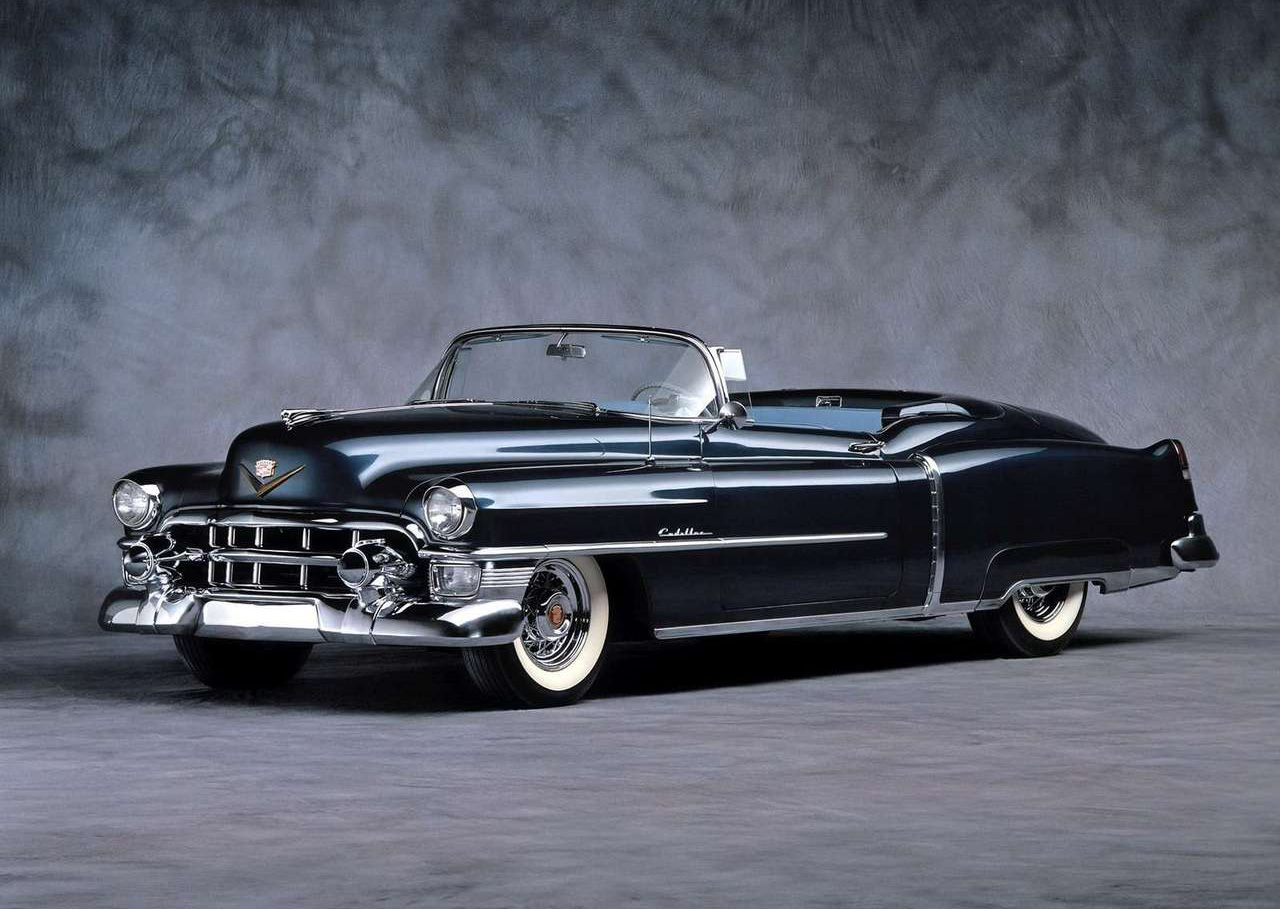In the realm of automotive elegance, few cars capture the essence of timeless beauty quite like the 1953 Cadillac Eldorado Sport Convertible Coupe. This magnificent vehicle made its grand debut in January 1953, proudly carrying Dwight D. Eisenhower down Pennsylvania Avenue during his historic inauguration as the 34th President of the United States. The sight of yet another head of state being chauffeured in a Cadillac spoke volumes about the brand’s prestige and status.
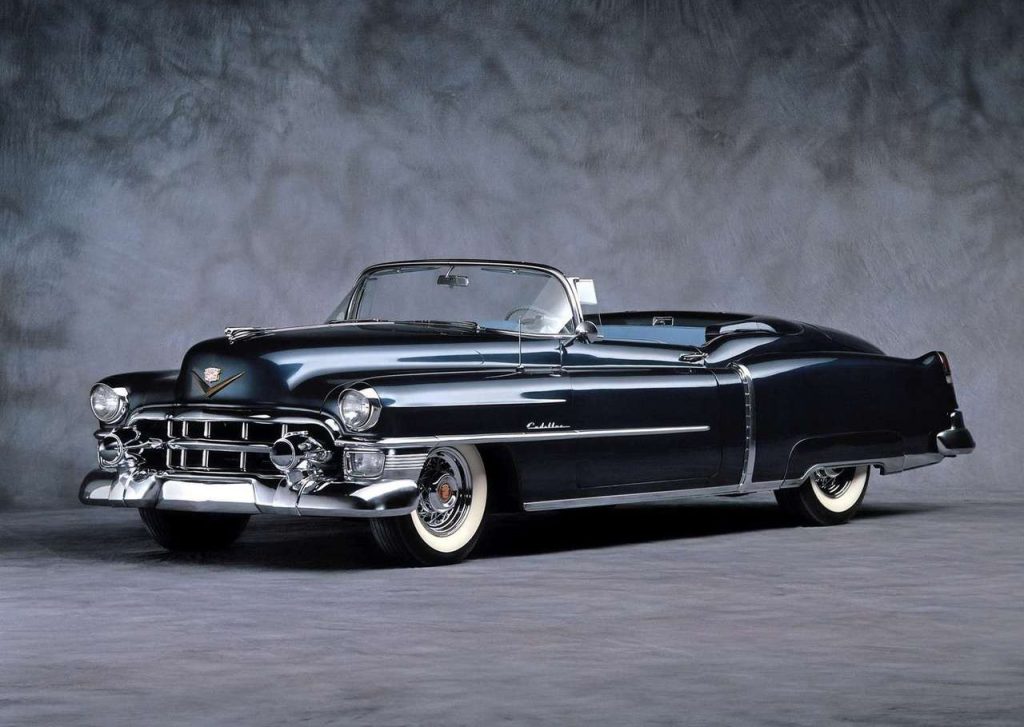
The Halo Car with Motorama Pedigree
The 1953 Eldorado was meticulously crafted to be Cadillac’s halo car, embodying the epitome of luxury, style, and innovation. Serving as a successor to the awe-inspiring 1952 Motorama show car, this automotive masterpiece commanded attention with its breathtaking design and cutting-edge features. Priced at a staggering $7,750, the Eldorado was almost twice the cost of a standard Series 62 convertible, solidifying its exclusivity. Only a limited production run of 532 of these extraordinary models was ever realized.
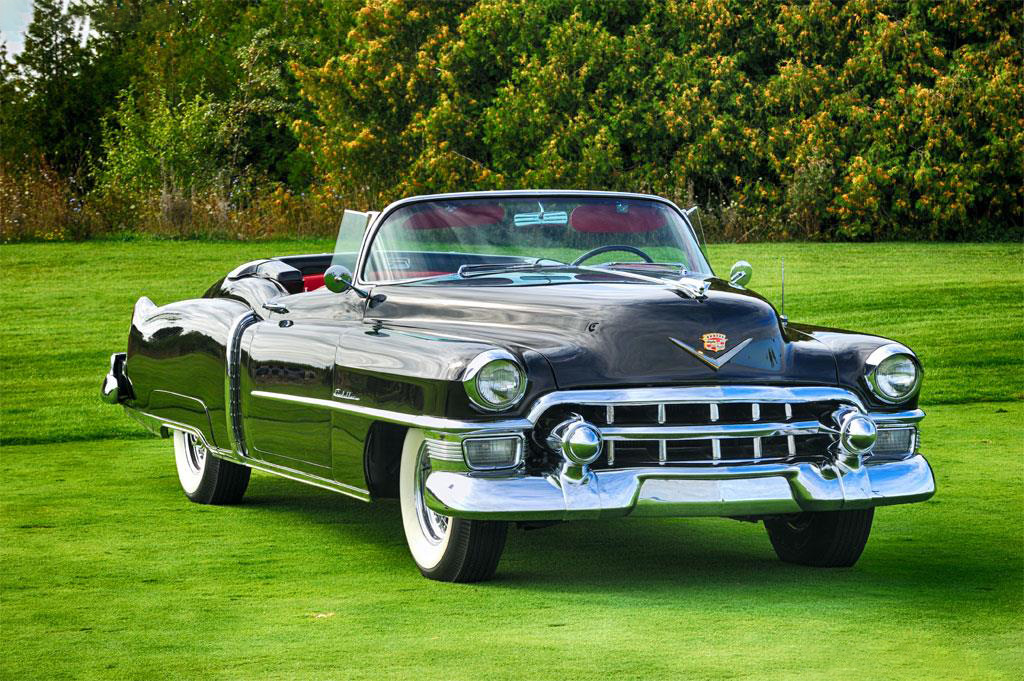
Aesthetic Excellence
To fulfill its role as a style leader, the ’53 Eldorado boasted a host of distinctive features that exemplified Motorama pedigree. The car’s allure stemmed from special cut-down doors, elegant wire wheels, a captivating wraparound windshield, and a sleek metal cover for the folded top. Even by today’s standards, the Eldorado’s low-slung and streamlined appearance continues to captivate hearts and turn heads.
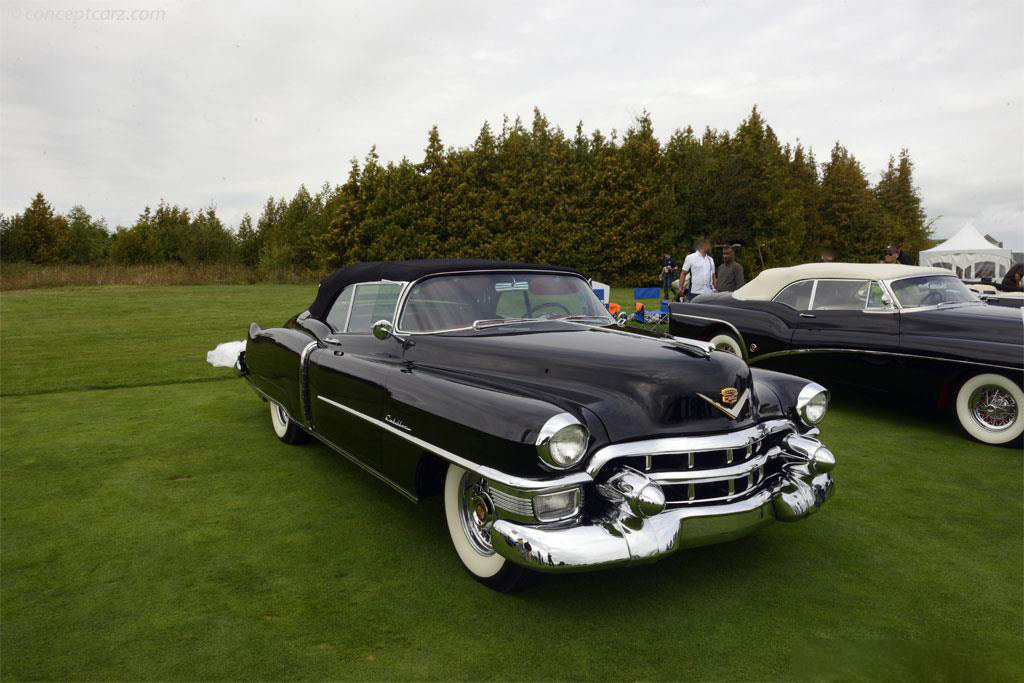
Opulent Interior
Stepping inside the Eldorado was akin to entering a realm of opulence and refinement. The lavish leather interior, power seats, and signal-seeking radio were befitting of this ultra-prestigious vehicle. Every detail was meticulously crafted to provide an unrivaled sense of luxury, leaving passengers in awe of the Eldorado’s grandeur and comfort.
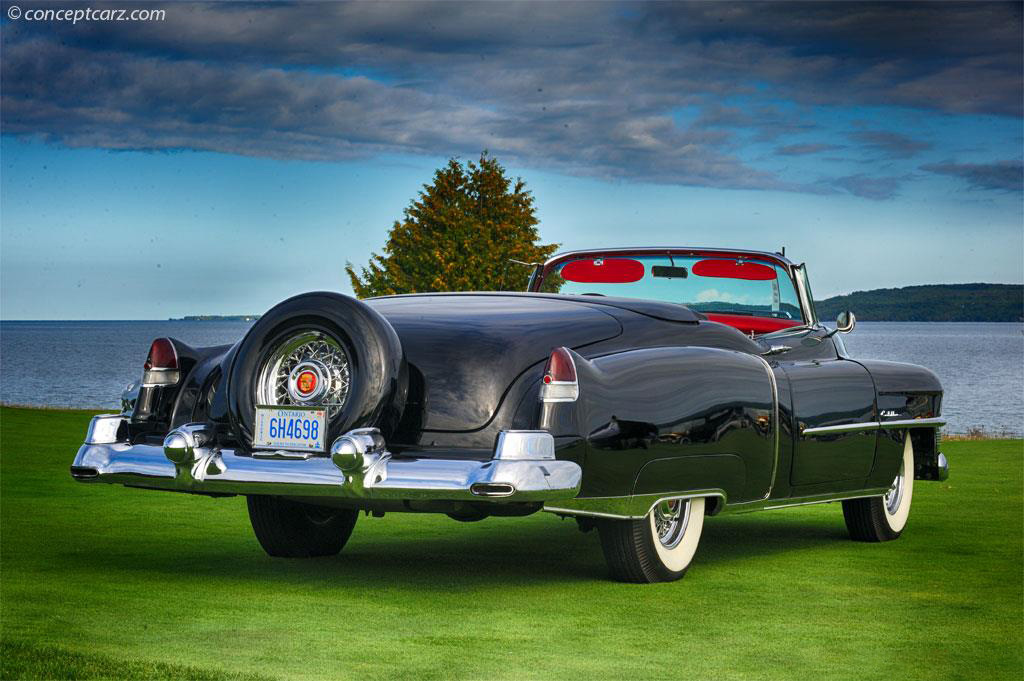
Power and Performance
Underneath its magnificent exterior, the Eldorado housed a powerful heart—an impressive high-compression 331 cubic-inch V8 engine, capable of delivering 210 horsepower. This remarkable powertrain combined elegance with performance, allowing the Eldorado to effortlessly glide along the open road, leaving admirers in its wake.
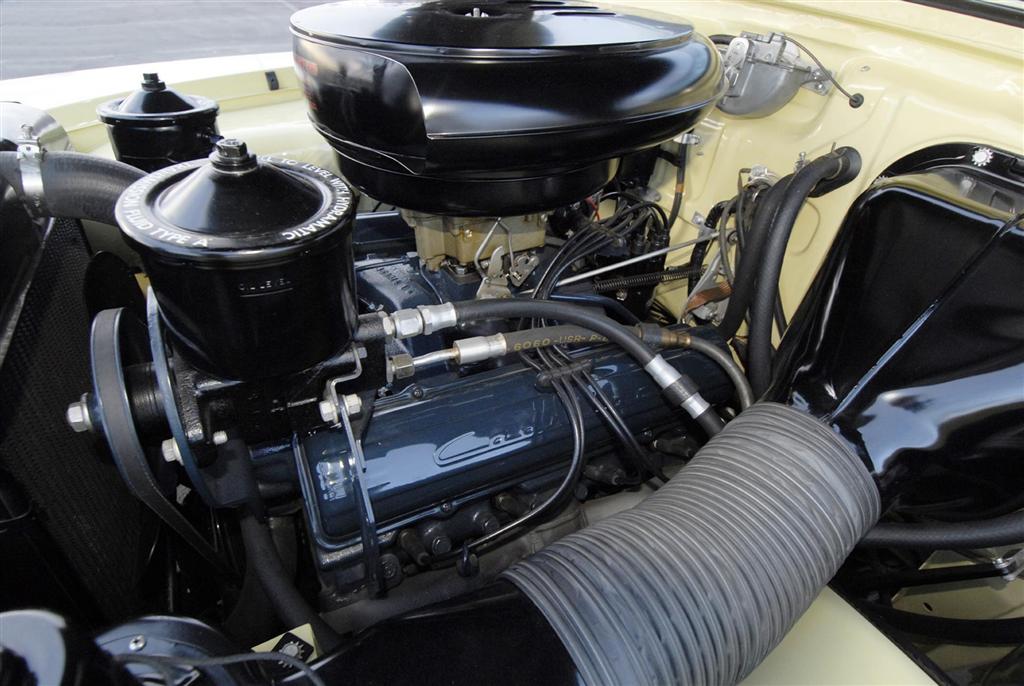
The Essence of Automotive Ingenuity
The 1953 Cadillac Eldorado epitomized the era’s spirit of automotive innovation and design. General Motors, recognizing the importance of capturing the public’s imagination, introduced bold and futuristic designs showcased through their exciting Motorama cars. The Eldorado, derived from the previous year’s show car, perfectly encapsulated the spirit of progress, featuring a convertible top, a wraparound windshield, rear wheels mostly concealed by covers, and a custom interior.
Priced at $7,750—a significant premium over the average coupe—the Eldorado stood as an exclusive and rare automobile, even by today’s standards. With only 532 units ever created, owning an Eldorado meant possessing a truly exceptional piece of automotive history.
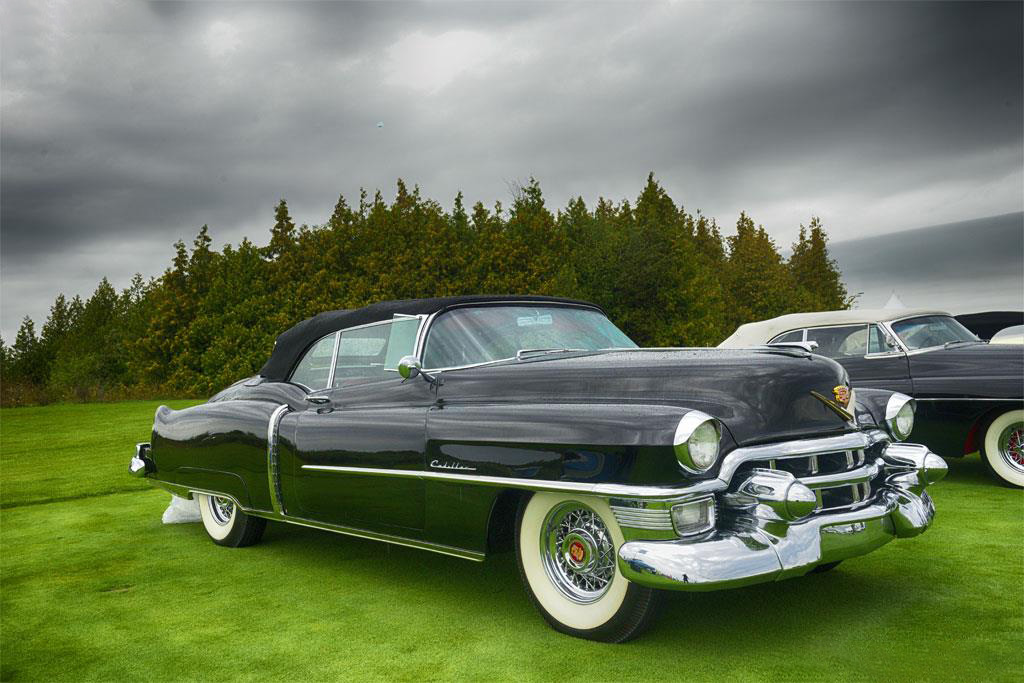
Unleashing Luxury: The Series 62 Lineup
Alongside the Eldorado Special Sport Convertible Coupe, the Series 62 line offered a range of enticing options for Cadillac enthusiasts. This lineup comprised a sedan, coupe, Coupe DeVille, and Convertible Coupe, each embodying their own unique charm and style. The most popular model, priced at $3,670, was the standard coupe, with an impressive 47,318 units built. Following closely behind were the Coupe DeVille and the Coupe, with 14,550 and 14,353 units sold respectively. Topping the range was the Convertible Coupe, priced at $4,145 and boasting a production run of 8,367 units.
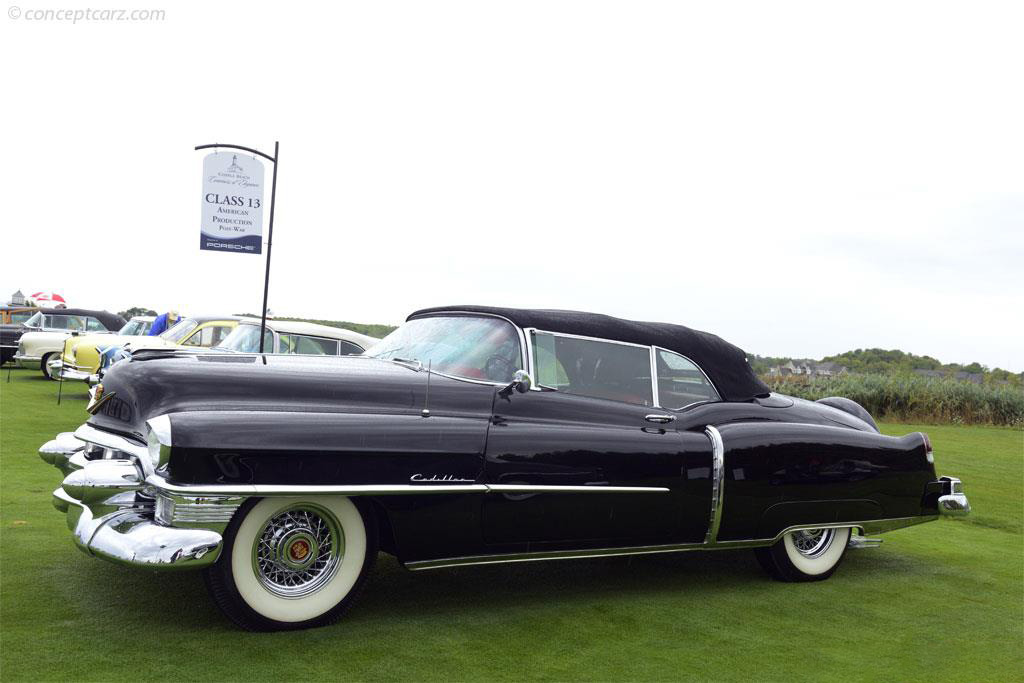
Exquisite Design and Exhilarating Performance
The Series 62 models all shared the same foundation—a 126-inch wheelbase that provided a balance between comfort and agility. The Series 60 Special Fleetwood, priced at $4,300 for the sedan, featured a slightly longer 130-inch platform, while the range-topping Series 75, commanding a price exceeding $5,600, utilized a sprawling 146.75-inch platform. All 1953 Cadillacs were equipped with the legendary 331 cubic-inch V8 engine, featuring overhead valves, a robust cast-iron block, five main bearings, an 8.25:1 compression ratio, and an impressive power output of 210 horsepower at 4,150 RPM.
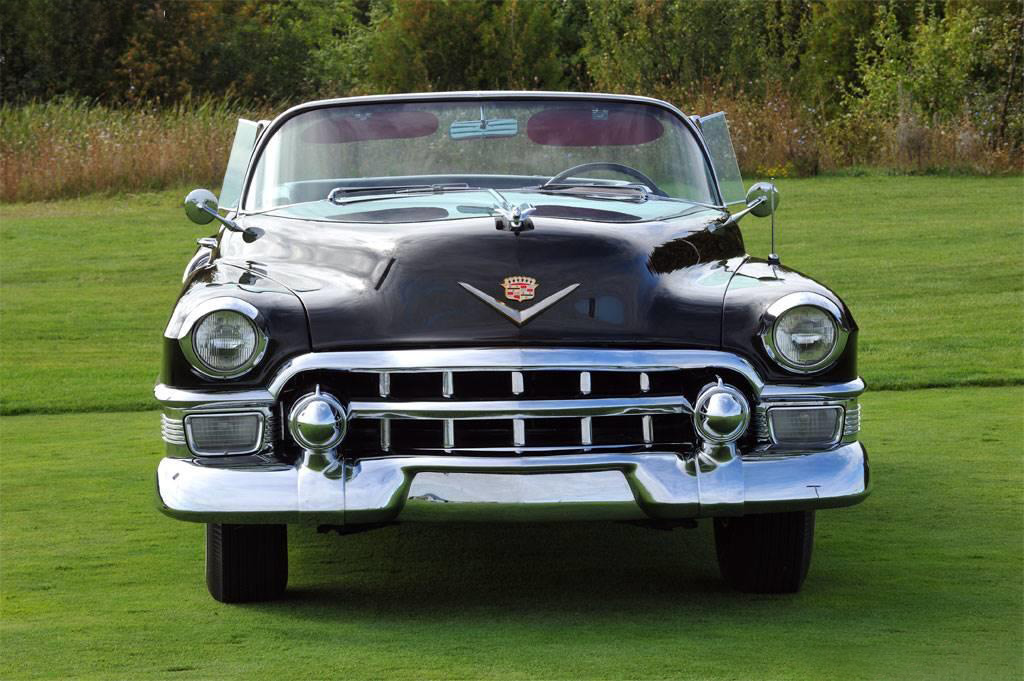
Striking Visual Upgrades
Cadillac made notable aesthetic updates to the Series 62 lineup, ensuring their vehicles exuded elegance and sophistication. These updates included stylish chrome headlamp doors, one-piece rear windows without division bars, dished wheel discs, and a redesigned grille with integrated bumpers and bumper guards. The parking lamps found a new home under the headlamps, while the rear non-louvered fenders gracefully transformed into iconic tailfins. The lower portion of the car was adorned with gleaming chrome accents, and the hood and deck lid proudly showcased the unmistakable Cadillac crest and V-shaped ornamentation.
Uncompromising Luxury and Technological Innovations
Standard equipment in the Series 62 lineup left no room for compromise. Dual-range Hydra-Matic drive transmission ensured smooth and effortless shifts, while glare-proof mirrors enhanced visibility. A self-winding clock added a touch of refinement, and direction signal indicators provided improved safety on the road. Hydraulic window lifts were a welcome convenience in the convertible and Coupe De Ville body styles.

Overcoming Adversity: The Fire and Resilience
During the production of the 1953 Cadillac models, a fire broke out at the Hydra-Matic transmission factory in Livonia, Michigan, on August 12th. As a result, production came to a halt and would not resume until September 8th. To bridge the gap, Cadillac fitted approximately 28,000 vehicles with the Buick Dynaflow transmission, demonstrating the brand’s determination to meet customer demand and overcome unexpected challenges.
Enduring Popularity
The Series 62 remained an enduring favorite among automotive enthusiasts, capturing the hearts of buyers and accounting for an impressive seventy-eight percent of Cadillac’s total 1953 production. The combination of luxurious design, outstanding performance, and innovative features solidified the Series 62 as a symbol of American automotive excellence.
In conclusion, the 1953 Cadillac Eldorado Sport Convertible Coupe stands as a true testament to the golden age of automotive design and innovation. With its mesmerizing style, luxurious features, and powerful performance, this Motorama-inspired masterpiece continues to evoke awe and admiration in the hearts of car enthusiasts and collectors worldwide. The 1953 Eldorado remains an icon, showcasing the timeless allure of Cadillac’s rich heritage and unwavering commitment to excellence.

Frequently Asked Questions
1. How many 1953 Cadillac Eldorado Sport Convertible Coupes were produced? Only 532 examples of the 1953 Cadillac Eldorado Sport Convertible Coupe were built, making it an exceptionally rare and exclusive model.
2. What distinguished the Eldorado from other Cadillac models? The Eldorado featured special cut-down doors, wire wheels, a wraparound windshield, and a metal cover for the folded top, giving it a distinct and sleek appearance that set it apart from other Cadillac models.
3. What was the price of the 1953 Cadillac Eldorado Sport Convertible Coupe? The 1953 Eldorado had a base price of $7,750, nearly twice the cost of a standard Series 62 convertible. Its premium price reflected its status as a luxury halo car.
4. What was the engine power of the 1953 Cadillac Eldorado? The 1953 Eldorado was equipped with a high compression 331 cubic-inch V8 engine that produced 210 horsepower, providing impressive power and performance.
5. Which other models were part of the Series 62 lineup? The Series 62 lineup included a sedan, coupe, Coupe DeVille, and Convertible Coupe. Each model offered its own unique features and design elements, catering to various preferences and tastes.







